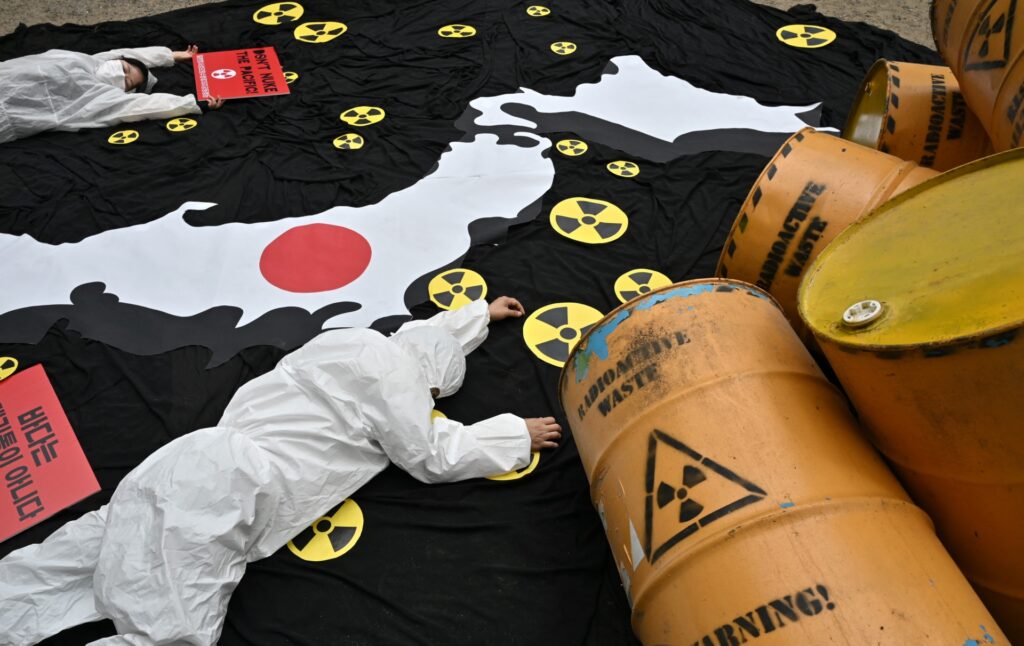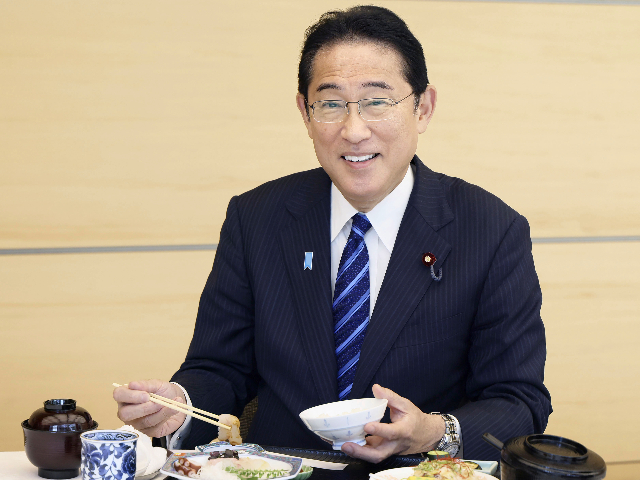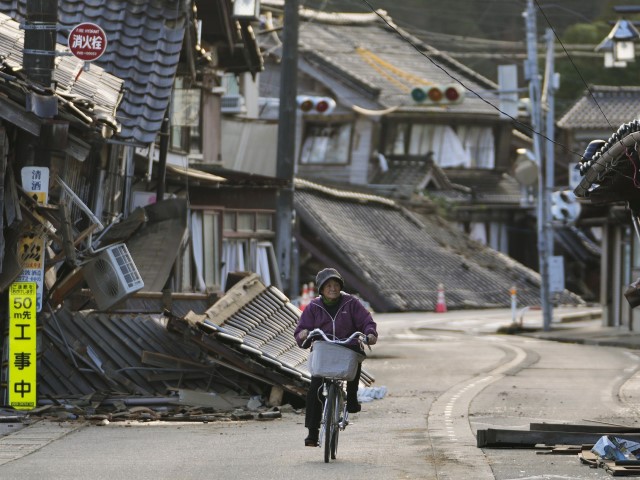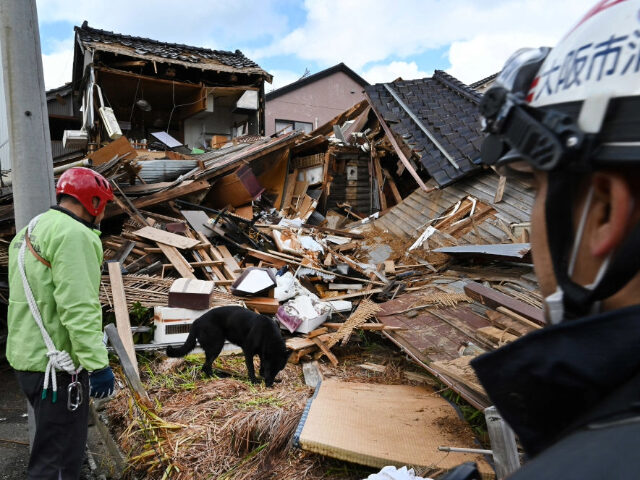A Chinese television news anchor named Xiao Chenghao posted a video on New Year’s Day describing the deadly earthquake in Japan as a “comeuppance” and “retribution” for Japan releasing wastewater from the Fukushima nuclear reactor.
“With such a large-scale natural disaster happening on the first day of the year, I’m afraid Japan will be shrouded by gloomy clouds for all of 2024,” Xiao said in a video posted to his social media account titled “A Comeuppance Arrived: A 7.4-Magnitude Earthquake Hit Japan.”
Xiao suggested Japan should “do some deeds less” to avoid further cosmic retribution. For example, he said the Japanese “should not have discharged nuclear water into the sea.”
Japan began implementing the carefully planned release of treated wastewater from the 2011 Fukushima Daiichi nuclear accident in August 2023. The plan was approved by the International Atomic Energy Agency (IAEA), which agreed with Japanese scientists that the amount of trace radioactive material remaining in the water was harmless and would become all but undetectable when dispersed into the immense volume of the Pacific Ocean.

South Korean environmental activists perform during a protest in Seoul against Japan’s plan to discharge Fukushima radioactive water into the sea as they mark World Oceans Day on June 8, 2022. (Jung Yeon-je / AFP)
The wastewater release nevertheless became a topic of great controversy in China and South Korea, which said they would ban Japanese seafood even after Japanese Prime Minister Kishida Fumio feasted on fish caught from Fukushima to prove it was safe. The U.S. military helped to mitigate the effects of China’s boycott in October by buying large amounts of the Japanese seafood China refused to purchase.

Japanese Prime Minister Fumio Kishida eats seafood from Fukushima prefecture at lunch at the prime minister’s office in Tokyo, Japan, on August 30, 2023. (Cabinet Public Affairs Office via AP)
The devastating earthquake Xiao saw as fitting divine punishment for the Fukushima wastewater release occurred on Monday. The confirmed death toll stood at 78 on Thursday morning, with at least 50 more people missing and 330 injured. Thousands of Japanese soldiers are helping police and firefighters comb through the wreckage for survivors.
The quake knocked out the power to some 29,000 homes in the coastal prefecture of Ishikawa and left 110,000 without water. The quake and aftershocks completely destroyed thousands of houses. Hundreds of survivors remain trapped in inaccessible buildings with dwindling supplies.

A woman bikes amid damaged houses in Noto town in the Noto peninsula facing the Sea of Japan, northwest of Tokyo, on January 2, 2024, following Monday’s deadly earthquake. (Hiro Komae/AP)
Xiao was suspended for his “inappropriate comments” by his employer, Hainan Radio and TV (HMG), on Thursday. The company promised a thorough “investigation” of the situation. As of Thursday, Xiao had not apologized for his remarks.
The South China Morning Post (SCMP) noted that while some Chinese “netizens” were appalled by Xiao’s post, others agreed with him and “gloated about the disaster.” This exacerbated concerns about growing extremism and hate speech on China’s social media, which is very friendly to the Japanese at the best of times.
China’s state-run Global Times claimed most Chinese internet users “believe the occurrence of natural disasters should be greeted with sympathy,” while a “small group” agreed with his comments and urged HMG to reinstate him.
Chinese Foreign Ministry spokesman Wang Wenbin said on Wednesday that his government “expressed sympathies to the Japanese side” and offered to “provide necessary help to Japan for its relief and rescue efforts.”

COMMENTS
Please let us know if you're having issues with commenting.